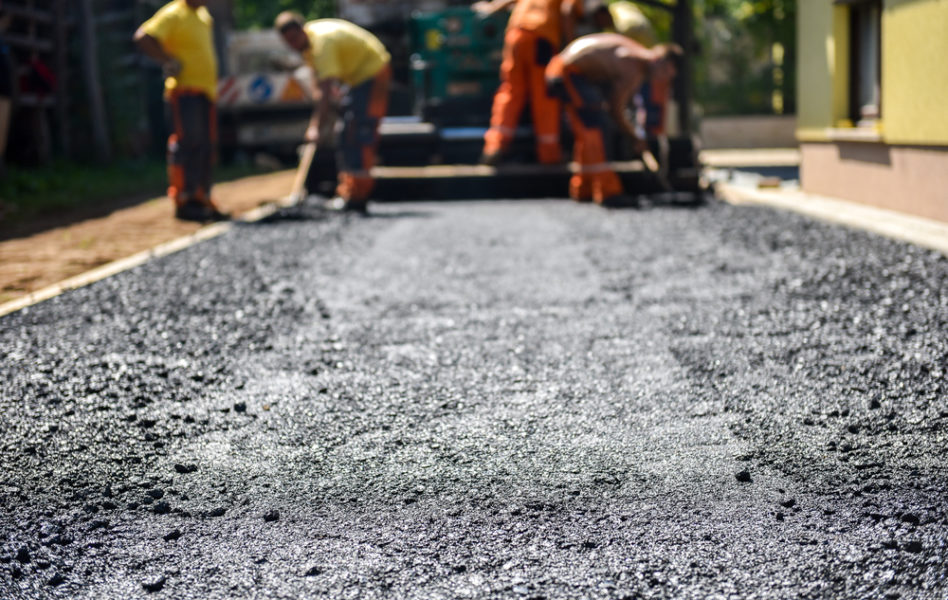Transform Your Home's Landscape with Hot Mix Asphalt Paving Quality
Hot Mix Asphalt: Redefining Roadway Construction Criteria
Hot Mix Asphalt (HMA) is substantially altering the landscape of roadway construction practices, establishing new performance standards and reshaping sector criteria. The ramifications of HMA in redefining road construction standards are extensive, providing a compelling case for a closer examination of its transformative capacities in contemporary engineering techniques.
Benefits of Hot Mix Asphalt
Hot Mix Asphalt (HMA) uses countless advantages that make it the recommended choice for paving roads. One of the crucial advantages of HMA is its capacity to withstand heavy web traffic tons and rough weather conditions, guaranteeing resilient efficiency.
In addition, the smooth surface area coating of HMA reduces rolling resistance, improving fuel efficiency for cars and reducing general transport costs. The fast construction time related to HMA projects further improves its cost-effectiveness by minimizing labor and website traffic interruption costs - Hot Mix Asphalt. The recyclability of HMA products makes it an eco sustainable choice for road building and construction projects.
Longevity and Sturdiness of HMA
With a proven track record of standing up to heavy website traffic lots and rough climate problems, Warm Mix Asphalt (HMA) stands out for its exceptional longevity and resilience in road building and construction projects. By supplying a stable and smooth riding surface for vehicle drivers, HMA decreases wear and tear on lorries and improves total roadway security.

Environmental Benefits of HMA
Significantly, roadway building and construction jobs are turning to Hot Mix Asphalt (HMA) for its considerable environmental benefits. HMA is a lasting paving product that uses a number of advantages in terms of environmental influence.
In addition, HMA sidewalks are understood for their capability to mitigate stormwater drainage. The smooth surface area of HMA roadways enables rain to flow effectively into the ground, minimizing disintegration and lessening the danger of flooding. This can have a positive effect on the bordering ecosystems by keeping natural water flow patterns and maintaining the top quality of water bodies.
HMA in Road Construction Projects

Roadway building tasks profit from HMA's fast construction time, permitting for faster completion of roadways and decreasing web traffic disruptions. Overall, including HMA right into roadway building and construction tasks leads to durable, economical, and eco-friendly roads that meet the demands of contemporary transport systems.
Impact of HMA on Infrastructure
The extensive use Warm Mix Asphalt (HMA) in roadway building and construction jobs substantially affects the general infrastructure quality and longevity. HMA gives a smooth and long lasting driving surface area that improves road safety by lessening and decreasing accidents vehicle damage. This, consequently, results in decrease upkeep costs for both vehicles and the roadway itself. Additionally, HMA's adaptability enables it to adapt to differing weather, protecting against fractures and fractures that can jeopardize the architectural stability of roads.
Furthermore, making use of HMA in framework jobs adds to environmental sustainability. HMA is a recyclable product, which means that old asphalt can be recycled in new roadway construction, reducing the requirement for virgin products and minimizing waste. This not only preserves natural resources yet also reduces the carbon impact related to road building. To conclude, the impact of HMA on facilities is extensive, advertising safer roads, cost-effectiveness, and ecological duty in road building tasks.
Conclusion
To conclude, Warm Mix Asphalt (HMA) has actually verified to be a game-changer in roadway building requirements because of its unmatched performance, durability, and cost-effectiveness. With its ability to withstand heavy website traffic lots and rough climate condition, HMA uses a lasting and reputable service for infrastructure projects. Its smooth riding surface, resistance to fracturing, and simplicity of maintenance make it a top selection for improving road safety and lowering ecological impact. HMA establishes a brand-new benchmark for sustainable and high-grade infrastructure growth.
With a tried and tested track record of holding up against heavy website traffic loads and best site extreme weather conditions, Warm Mix Asphalt (HMA) stands out for its extraordinary long life and sturdiness in roadway construction jobs.Making Use Of Hot Mix Asphalt (HMA) in roadway building useful content and construction jobs offers many benefits in terms of resilience and sustainability.Roadway building and construction projects benefit from HMA's fast building and construction time, allowing for faster completion of roads and decreasing traffic disruptions.The substantial usage of Warm Mix Asphalt (HMA) in roadway construction projects dramatically affects the overall infrastructure high quality and durability. In verdict, the influence of HMA on infrastructure is profound, promoting much safer roads, cost-effectiveness, and environmental obligation in roadway building and construction tasks.